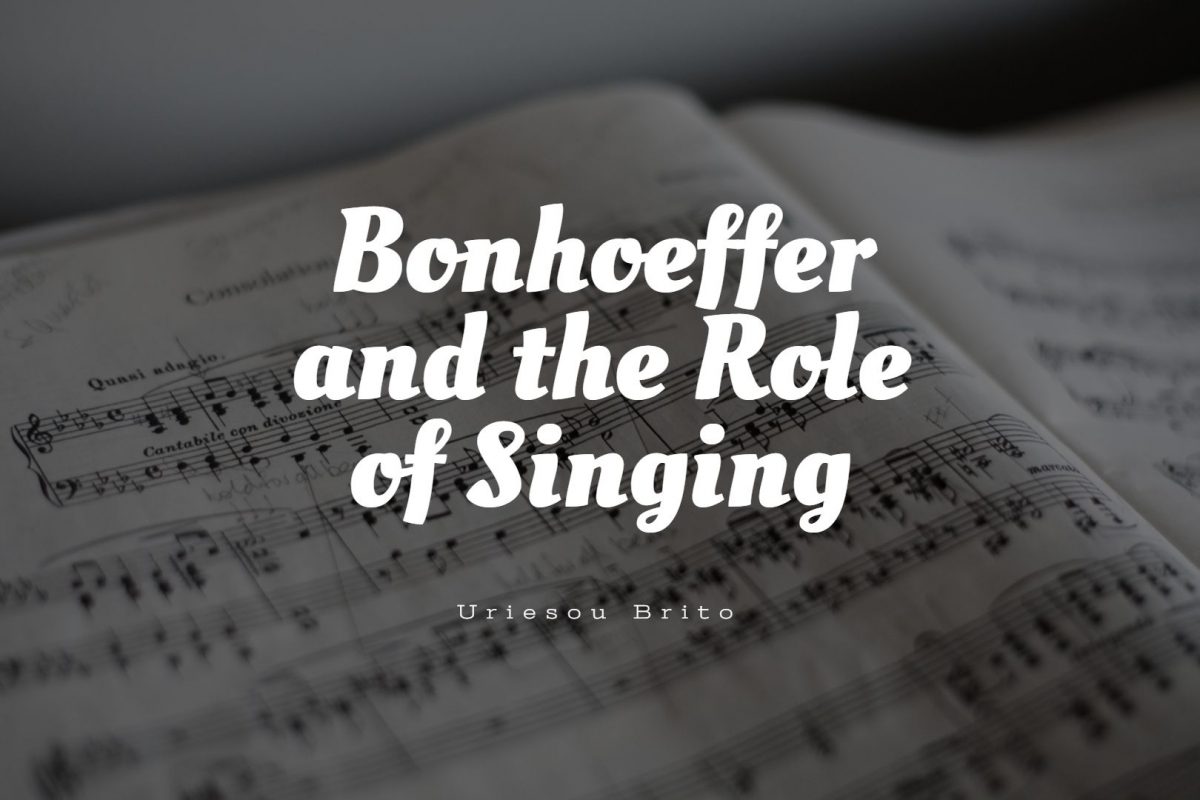Bonhoeffer’s wisdom is needed in these tumultuous times. There is certainly a rise in interest in what the Lutheran martyr would say in our our own day. I will be delivering a talk at the Psalm Tap Colloquium this Wednesday on what Bonhoeffer would say to evangelicals today about singing.
My current doctoral project spends half of a chapter thinking through Bonhoeffer’s understanding of friendship and how the role of community shapes relationships. Of course, when you read hundreds of pages of an author’s words and interpreters of said author, you end up exposing yourself to a host of topics which I kindly tuck in a folder and reserve the right to peruse at a future date. Bonhoeffer’s Ethics, for instance, has always been one of those enchanting works that I had the opportunity to read through, but not with the intensity it deserves.
Alas, I delved deeply into his letters and the tenderness of his notes to family members and friends. Beyond the books, there is an entire array of technical works hidden from the public eye written by capable scholars who engage at a more profound level with Bonhoeffer. Robert Smith’s essay Bonhoeffer and Music Metaphor was one of those happy discoveries. Smith brings together Bonhoeffer’s hermeneutic with his music, thus providing a sample of the musical theology of the German theologian.
Smith offers a sample of how music shaped Bonhoeffer. His home was filled with what he called the “Grundton of joy.” Grundton speaks to the first degree of a major or minor scale in music, so that Bonhoeffer speaks of the prominence of music in the home as that which stimulated and promoted joy. Indeed, the later Bonhoeffer would contemplate those early days as preparatory for his latter days in a prison cell, which eventually led to his execution right before the end of the war.
Bonhoeffer notes that the greatest gifts that children can receive are “spiritual values” and “intellectual stimulation.” But he also notes that music is what will bring you to clarity in times of confusion. It is the practice that will sustain you in times of sadness. Bonhoeffer lived that out in his prison cell as he bathed himself in hymns from his Lutheran tradition and his favorite Psalm settings from Heinrich Schütz. He sang not just as a pastime but as an objective of way of remembering God’s promises amidst uncertainty.
Bonhoeffer’s legacy to our uncertain times is not some mystical mantra, but the concrete singing of psalms and hymns. It’s how we “point the Christian to his foundation.” For his Lutheran theology, that meant God as a suffering God would take our song and minister to us in our suffering. Thus, singing took us to the cross where the note of greatest joy sounded on Good Friday.













